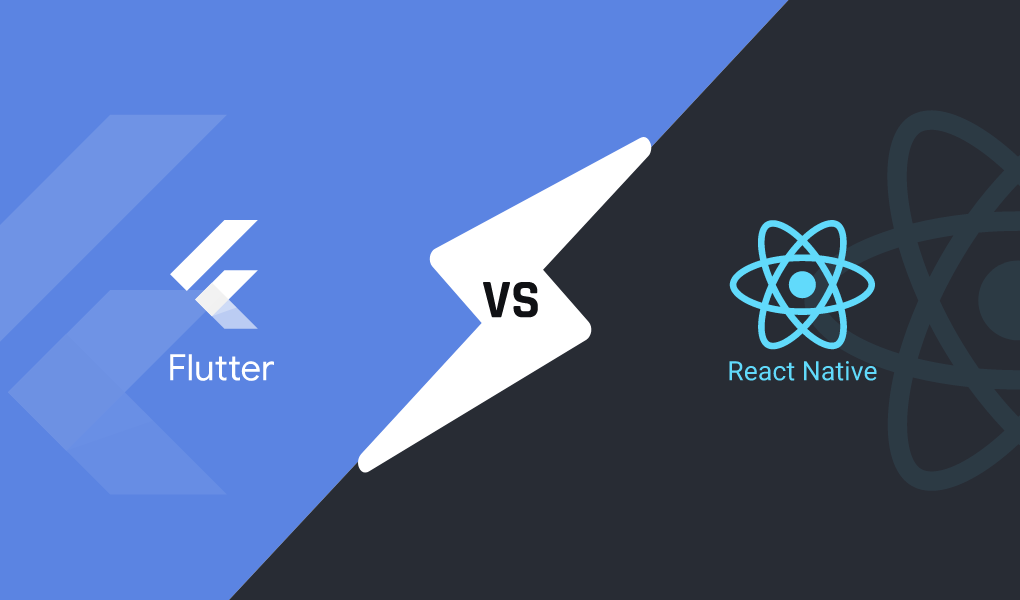· 4 min read
React Native vs. Flutter Which One Should Customers Choose?
React Native vs Flutter, Compare these cross-platform frameworks. Discover which suits your app's performance, UI, and future needs in mobile development.

Keywords
React Native, Flutter, cross-platform development, mobile app performance
1. Introduction to React Native and Flutter
React Native: Developed by Facebook and launched in 2015, React Native allows developers to build mobile apps using JavaScript and React. It enables the creation of apps for both iOS and Android from a single codebase, leveraging native components.
Flutter: Launched by Google in 2018, Flutter uses Dart as its programming language. It’s a UI toolkit for building natively compiled applications for mobile, web, and desktop from a single codebase, with a focus on delivering expressive and flexible UIs.
2. Performance
React Native: React Native offers near-native performance, but it relies on a bridge to communicate between the JavaScript code and native components. This can sometimes introduce performance lags, especially in complex applications.
Flutter: Flutter boasts better performance as it compiles directly to native ARM code, eliminating the need for a bridge. Its performance is closer to native apps, making it ideal for applications that demand high performance.
3. Development Experience
React Native: Developers familiar with JavaScript and React will find React Native relatively easy to learn. It also benefits from a large community and extensive libraries. However, dealing with native modules might require knowledge of Swift, Java, or Objective-C.
Flutter: While Flutter’s Dart language might be unfamiliar to some developers, it’s relatively easy to pick up, especially for those with a background in object-oriented programming. Flutter also offers a rich set of pre-designed widgets, making UI development more intuitive.
4. Community and Ecosystem
React Native: With a longer history, React Native has a larger community and a more mature ecosystem. There are numerous third-party libraries, tools, and plugins available, which can accelerate development.
Flutter: Flutter’s community is rapidly growing, thanks to Google’s backing. While it may not have as many third-party packages as React Native, the number is steadily increasing. Additionally, Flutter’s packages are generally well-maintained and reliable.
5. UI and Customization
React Native: React Native uses native components, meaning the app’s look and feel will be consistent with other native apps. Customizing the UI can be more challenging, especially when it comes to complex designs.
Flutter: Flutter excels in UI customization. Its rich set of widgets and flexible design allows developers to create custom UIs with ease. Apps built with Flutter can have a consistent look across platforms or a distinct design unique to the app.
6. Maintenance and Future Prospects
React Native: Being older, React Native has a lot of legacy code and some issues that might require workarounds. However, its strong community and continuous updates from Meta (formerly Facebook) ensure that it remains a solid choice for future projects.
Flutter: Flutter is newer, but it’s rapidly evolving with strong support from Google. It’s designed to be future-proof, with a focus on maintaining high performance and UI consistency. Flutter’s ability to target multiple platforms (including web and desktop) makes it a compelling choice for businesses looking for long-term solutions.
7. Use Cases: When to Choose Which?
React Native:
- When you have a team proficient in JavaScript and React.
- If your project requires integration with existing native apps or modules.
- For apps that need to look and feel native with minimal customization.
Flutter:
- If you need high-performance apps with custom designs.
- For projects where you want to target multiple platforms beyond just mobile.
- When you want a consistent and unique UI across platforms.
8. Conclusion: Making the Right Choice
Both React Native and Flutter are excellent choices for cross-platform app development, but the best choice depends on your specific needs and resources.
- Choose React Native if you prioritize a mature ecosystem, ease of integration with existing native components, and have a team familiar with JavaScript.
- Choose Flutter if you need superior performance, custom UI, and plan to extend your app to multiple platforms beyond mobile in the future.
In the end, both frameworks offer powerful tools to bring your app ideas to life. Evaluate your project’s requirements, your team’s expertise, and the long-term goals of your application to make the best choice for your business.
